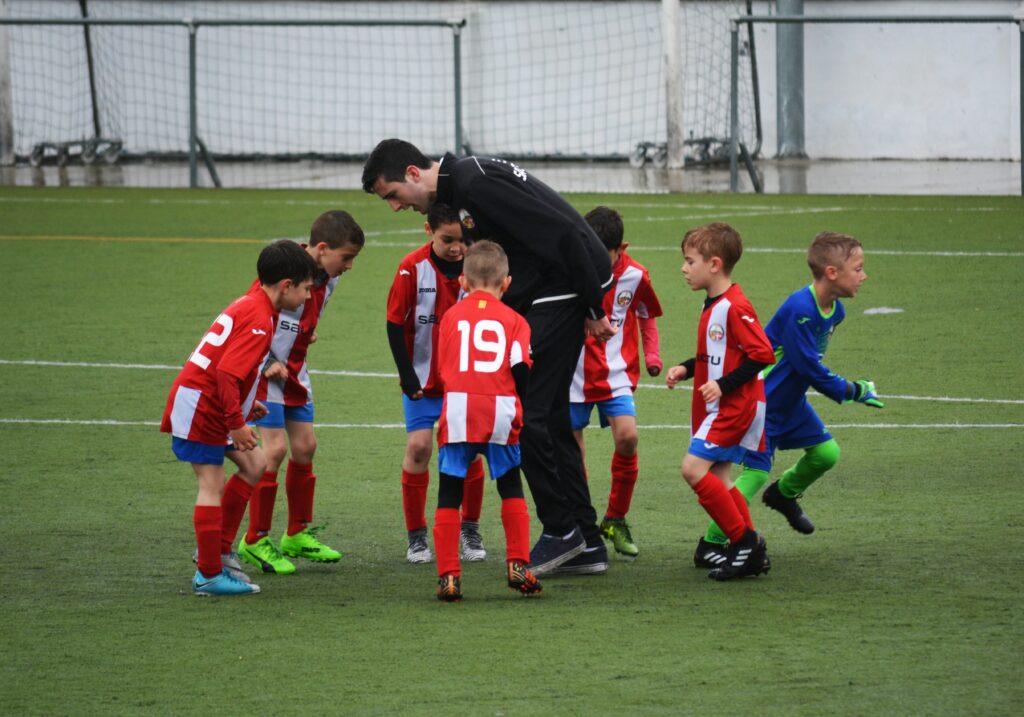Coaching is what it is all about. Not reading about it or talking about it but getting out on the grass having a go and making a difference.
Do you aspire to be the coach that elevates players beyond their potential? The coach who leads the team to victory through innovative strategies and unified purpose?
If so, you’ll need to go beyond the standard practices and plays and master the art of advanced coaching.
Whatever sport you coach, the insights here will equip you to become the catalyst that unlocks your athletes’ full potential.
By the end, you’ll have a blueprint covering every aspect of advanced coaching to give your players an undeniable competitive edge this season.
Introduction
As a coach, I see each player as a unique individual with their own set of skills and opportunities for growth.
Embracing a growth mindset isn’t just a buzzword; it’s about truly believing that with the right guidance, every player can elevate their game.
My approach is to tailor training that resonates with each player’s needs, allowing them to develop at their own pace while still pushing their boundaries.
One of my top priorities is fostering creativity and initiative. I encourage players to take risks and make decisions on the field that they can learn from, both in success and failure.
It’s not enough to have the skills; players need to think on their feet and adapt to the ever-changing landscape of a match.
Building a culture of improvement is perhaps the cornerstone of advanced coaching. This involves setting high standards and clear goals, but also maintaining an environment where players feel supported.
They know I am there not just to critique but also to guide and encourage them. This also includes recognising and celebrating the small victories, which fuels the motivation to keep striving for excellence.
Mastering the Tactical Game: Coaching Strategies for Outsmarting the Opposition

I approach coaching with the mindset that every opponent presents a unique challenge.
Analysing the opposition’s strengths and weaknesses isn’t just a cursory part of preparation; it’s a meticulous process that can determine the outcome of the match.
I not only study their recent games but also track patterns over the season. This data becomes the foundation for developing adaptive game plans tailored to neutralise their advantages.
Tactical flexibility is another cornerstone of sophisticated coaching, and in my experience, it’s a game-changer.
At a higher level, being predictable can be a major disadvantage. I design training sessions that teach players to switch formations and tactics mid-game fluidly.
This allows the team to adapt to the flow of the match and can often catch the opponent off-guard.
I strongly believe in the power of visual learning. Using game footage effectively bridges the gap between theory and practice.
I integrate video analysis in training to highlight successful plays and areas needing improvement.
It enables players to see the tactical concepts in action and understand their roles within those strategies.
Incorporating the latest strategies is about staying ahead of the curve. I engage with coaching networks, attend workshops, and keep abreast of the latest soccer methodologies.
This allows me to bring innovative ideas to the field, ensuring that the team is not only current but also a step ahead.
Physical and Mental Conditioning: Preparing Players for Success

In advanced soccer coaching, one fundamental truth stands out: physical prowess and mental strength are often the great dividers between good and exceptional players.
Here, I’ll share the insights and practices you can integrate to elevate your athletes’ game.
Harnessing advanced sports science principles is critical for refining training regimens.
Use data-driven approaches to tailor fitness programs, targeting specific muscle groups and energy systems used in soccer.
Track progress with wearable technology like a Garmin smartwatch to ensure players are achieving peak physical conditioning.
Injury prevention takes centre stage in any advanced coaching strategy. A robust protocol includes dynamic warm-ups, proprioceptive exercises, and post-training cool-downs.
Encourage players to listen to their bodies and communicate any discomfort early to address potential issues before they escalate.
Strength isn’t just about muscle; mental toughness and resilience are equally essential. Train players to handle pressure with psychological conditioning.
Visualisation, stress management techniques, and coping strategies for dealing with failure can significantly improve performance in high-stakes matches.
Nutrition and recovery are your secret weapons for ensuring players perform their best. Educate your team about the importance of balanced diets, hydration, and sleep.
Emphasise active rest days, incorporate foam rolling and consider investing in recovery technologies like Ice baths if your budget allows.
Remember, a player’s physical and mental readiness can drastically influence their on-field performance.
It’s up to you to be the catalyst that propels your players to the zenith of their abilities.
Now, let’s move on to how you can refine your leadership and communication skills to amplify your team’s success further.
The Art of Leadership and Communication in Soccer Coaching

You’ve built the foundation and tactics, and your players are physically and mentally game-ready.
The capstone? Exceptional leadership and communication skills which can significantly impact your team’s success.
I’m here to tell you, that clear and effective communication does more than just convey information; it builds trust, fosters a positive team atmosphere, and helps to resolve conflicts before they escalate. CLICK HERE to read my article on Effective Communication
By tailoring your leadership approach to the needs of your team, you show that you respect their individuality and value their growth.
Every word of encouragement, and every constructive piece of feedback you give can build a player’s confidence and deeply influence their performance.
Creating a feedback-rich environment is crucial. It allows for real-time adjustments and promotes a culture where players aren’t afraid to share their ideas or concerns.
Remember, feedback isn’t one-way. Listen actively to your players; their insights could be the key to unlocking new tactics or resolving persistent issues.
And finally, the bedrock of any successful team is an environment steeped in mutual respect and trust.
When players know they’re valued not just for their skills on the pitch but also as individuals, they’re more likely to express themselves, play with confidence, and strive for excellence.
Conclusion
Being an advanced coach requires much more than just drawing up simple sessions. It’s about being a master motivator, strategist, teacher, and leader who elevates a team to new heights.
Implement the techniques here to foster relentless growth, build robust strategies, and create a united, high-performing team culture.
Keep reaching for the cutting edge by attending workshops, engaging coaching networks, and continually honing your leadership abilities.
Make this season your team’s best by becoming the catalyst that transforms potential into excellence.
Ready to take your coaching to the next level and decide What’s Your Next Move? Check out this website from Edusportsglobal here https://www.edusportsglobal.com/
You will unlock your team’s full potential and take their game to new heights with the right blend of innovation, communication, and leadership.
Now, get out there, lead by example, and be the coach who changes everything!


